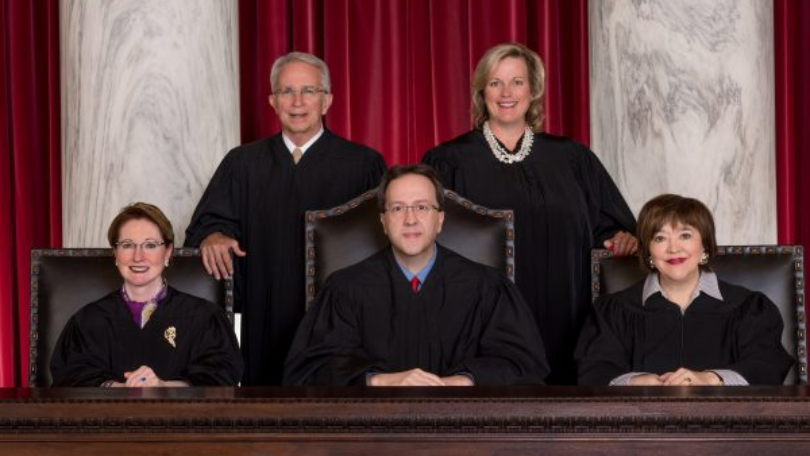
“We are taking the unusual step of making our findings public in these cases because Supreme Court Justices are the highest judicial officers in West Virginia,” said Commission Chairman Ronald Wilson, a judge in the First Judicial Circuit. “It is important for the public to know that allegations against them have been thoroughly investigated, and they have been cleared of wrongdoing.”
Source: 3 W.Va. Supreme Court justices cleared of ethics complaints
CHARLESTON, W.Va. (WSAZ) — A commission tasked with governing the ethical conduct of judges in West Virginia has cleared three justices without taking any disciplinary action.
The Judicial Investigation Commission (JIC) investigated ethics complaints against state Supreme Court Justices Robin Jean Davis and Beth Walker, as well as Chief Justice Margaret L. Workman.
“We are taking the unusual step of making our findings public in these cases because Supreme Court Justices are the highest judicial officers in West Virginia,” said Commission Chairman Ronald Wilson, a judge in the First Judicial Circuit. “It is important for the public to know that allegations against them have been thoroughly investigated, and they have been cleared of wrongdoing.”
It was the Judicial Disciplinary Counsel that opened the complaints earlier this year. The decision from the JIC closes the cases and all outstanding complaints against the justices.
The state Supreme Court established the JIC. Its purpose is to determine whether probable cause exists to formally charge a judge with a violation of the Code of Judicial Conduct. It is also the same organization that investigated allegations against Justice Allen Loughry and filed 32 formal charges against him on June 6.
The charges stem from $363,000 worth of renovations to Loughry’s office at the W.Va. State Capitol. A grand jury also indicted Loughry on more than 20 federal charges. You can read more about the investigation here.
The complaints alleged Davis, Walker and Workman used state funds to pay for lunches for themselves and other court employees while they discussed cases and administrative matters in conference.
However, the JIC determined those lunches made the court run more efficiently and effectively. It found those lunches actually reduced the amount of time attorneys spent in court, reducing legal fees, and “allowed visiting judges to return to their circuits in time to do other work the same day.”
The investigation found the lunch practice was also “longstanding.” In a letter to Justice Walker, the JIC stated, “You had no involvement in the original decision to provide working lunches on argument and administrative conference days and you had no reason to challenge the practice at the time you took office because it was well-known and well-established practice.”
Letters to the other justices stated, “Perhaps the only criticism that the JIC can make is that you failed to reduce the policy to writing – with well-established guidelines – for the purchase of the working lunches. By failing to do this, you unnecessarily opened the door to unfair public criticism of an otherwise appropriate method for conducting the business of the Court.”
The JIC also mentioned that both the IRS and the West Virginia Ethics Commission consider paid working lunches an acceptable expense because they improve efficiency.
The letters sent to the justices clearing them of wrongdoing are attached.
Letter to Justice Workman
Letter to Justice Walker
Letter to Justice Davis